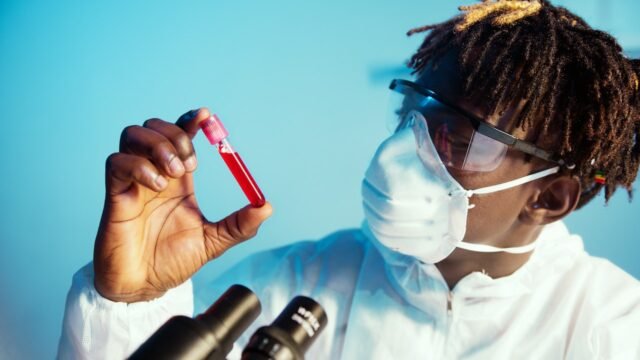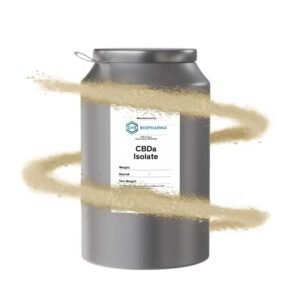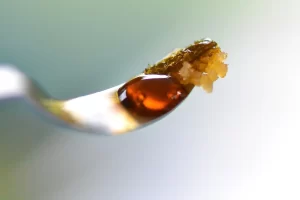When attempting to identify a patient with a specific ailment or assessing the patient’s overall health, the testing procedure that is typically frequently recommended by clinicians is a blood test. It is advised that blood tests be performed on the majority of patients before any kind of surgical treatment. This is because blood test could assist the surgeon in determining whether or not there is a severe blood condition present, which is necessary to determine whether or not the operation and its consequences will be affected. In addition to this, it is useful for determining the source of any infection or inflammation that may be present in the body. Here we will discuss everything you must know about how long you should not drink alcohol before a blood test.
Contents
The reason behind fasting
Given that every human body is unique, a predetermined standard of lipid values during fasting is required in order to establish which amounts of glucose, cholesterol, as well as iron are hazardous. Whenever you fast, the levels of some hormones in your blood return to normal. Before undergoing a glucose test, it is important to avoid eating or drinking anything that contains added sugar, as this might cause elevated blood sugar levels and produce false results from the test. The same can be said for blood testing for iron as well as cholesterol levels. According to the studies, eating prior to getting one’s cholesterol checked causes a rise in cholesterol levels that can be anywhere from 20 to 30 percent higher than normal. Consuming alcohol in the hours leading up to a test causes triglyceride levels to rise significantly.
The precision and reliability of such a blood test can be improved by fasting first before the test is performed. Precise test findings are an essential component of properly identifying a variety of health issues and also tracking how well treatment strategies are working.
A wide variety of nutrients, including carbs, proteins, triglycerides, minerals, & vitamins, are all included in your diet. Whenever you consume food and liquids in a normal manner, the nutrients in them are dissolved and absorbed into your bloodstream. This may have an effect on the amounts of those compounds in the blood and therefore distort the findings of lab tests.
Drinking alcohol before a blood test
Consuming alcohol the evening before such a liver and kidney test most probably causes your kidney function to seem to be lower than it is. Because alcohol impairs the body’s ability to regulate its fluid status, the majority of individuals who drink to excess wake up feeling a little dehydrated the next day. If you get a second set of lab tests done while you are well hydrated, they will probably reveal that your kidney function is approximately the very same as it was one year ago. If this is not the case, it is important to look for problems like high blood pressure, which can hasten the kidneys’ ability to operate normally. If you do not know how long you should not drink alcohol before a blood test. can make the kidneys’ function worse.
Why must you avoid alcohol?
Those individuals who have taken alcohol before going in for a blood test are strongly encouraged to address the situation with their personal physician to ascertain whether or not the test must be delayed. Because each blood test provides its results, it is essential that you inquire with your physician about whether or not you need to abstain from eating before the test and whether or not you need to take any other preventative measures. Due to this, fasting may be necessary because the things you consume can affect the outcomes of tests.
Blood tests are another useful tool for identifying potential issues at an earlier stage when therapies or adjustments in lifestyle are likely to be most effective. Therefore, if your physician has instructed you just not to consume alcohol even before the test, you really shouldn’t disobey the recommendations.
The influence of alcohol on a blood test report
The consumption of alcohol might result in abnormal enzyme levels, which could also make it difficult to interpret the results of a blood test. As a result, following a stringent fasting regimen in the hours leading up to blood tests is indeed a necessary step. This helps to guarantee that the findings of your blood tests are not skewed by transient changes as well as provides a more precise indication of the underlying condition being investigated.
How long should you not drink alcohol before a blood test?
The fact that alcohol, once ingested, is incorporated into our system makes it a significant element that may cause an erroneous blood test report. When getting your blood drawn, most medical professionals advise you to abstain from food and drink for a minimum of 8 to 12 hours.
Conclusion
Because alcohol can change the levels of sugar and fat in the blood, it might give erroneous findings on blood tests that necessitate the patient to fast. A person who is urged to fast before having their blood drawn also should abstain from consuming alcohol before having the test done. Cigarette smoking is another factor that can influence the outcome of blood tests.




